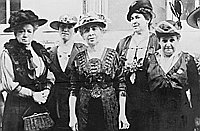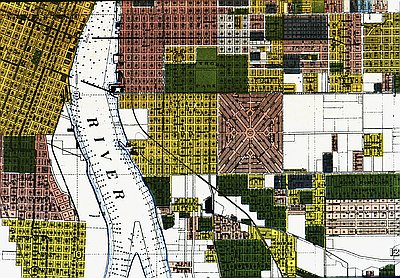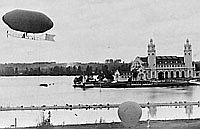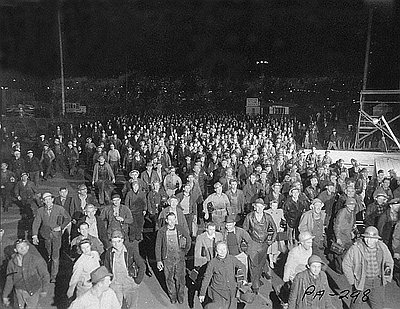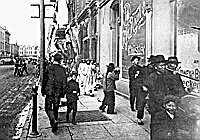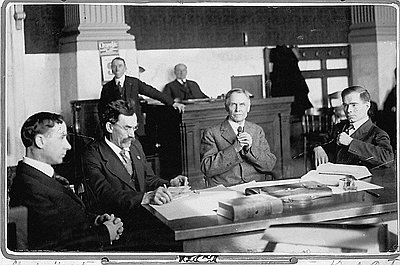Nascent Labor
Organized labor in Portland in the first two decades of the twentieth century, as in other western cities, endured internal conflict between the trade unions, who pursued practical gains for their members, and organizers for the Industrial Workers of the World (IWW), who sought to create a working-class mentality to transcend craft divisions. The IWW organizers wanted to turn walkouts for specific goals by small groups of unorganized workers into a general strike for major concessions, especially the eight-hour day. Management feared the IWW, which used confrontational tactics, and the police were more likely to use repressive tactics against them.
The IWW had thrived on the wageworkers’ frontier, but when technological innovations in farming made the seasonal search for labor obsolete, both the tactics and goals of the union became obsolete. Workers now looked to unions that required more skills for entry but that could deliver more specific benefits. By 1921, the Portland Central Labor Council followed a national trend by starting a Labor College. Debates among the board of directors over curriculum revealed the ongoing conflict between craft union leaders, who wanted classes on work skills taught by business agents, and professors supportive of labor who believed that classes should explain why relationships between workers and employers were changing. Classes started enthusiastically with volunteer instructors from Reed College and the Oregon Agricultural School, as well as a minister and a juvenile court worker. When the Labor College faced financial problems in 1925, the head of the school, Harry Aaron Director, a graduate of Lincoln High School with a bachelor’s degree from Yale, invited in Communist speakers like Anna Louise Strong, Elizabeth Gurley Flynn, and Scott Nearing. The presence of such radicals angered several craft union leaders, and funds for the college diminished. Not until the 1970s did the State of Oregon support labor studies centers, located now at Portland State University and the University of Oregon.
© William Toll, 2003. Updated and revised by OHP staff, 2014.
